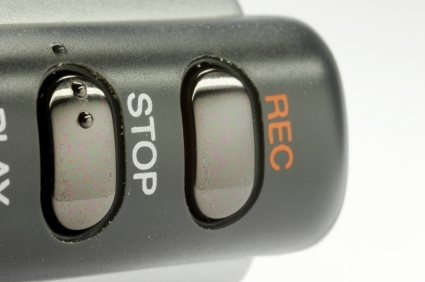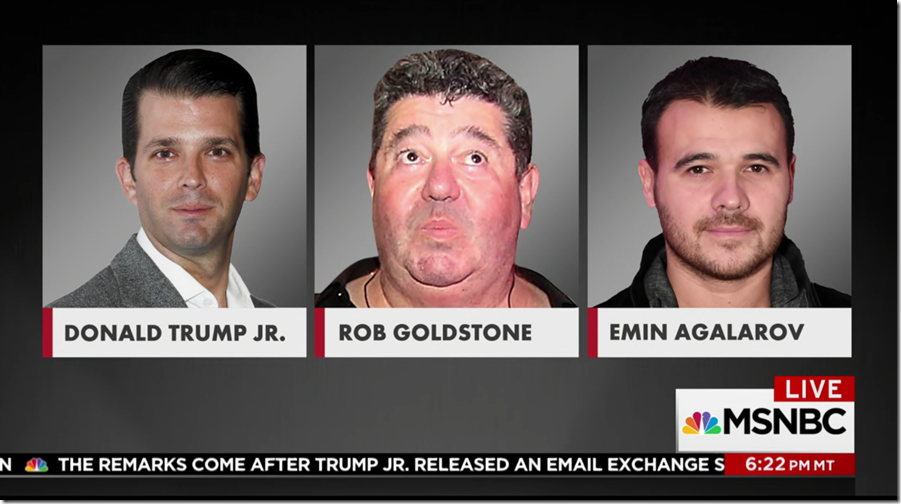Question: Do You Tape Reporters During Media Interviews?
I recently received the following email from Christopher Holcroft, an Australian public relations pro. He writes:
“I have found these days more and more journalists who conduct phone interviews are recording them on voice recorders. To ensure there is complete transparency and to keep within my country’s federal laws, I ask the journalist if they are recording. I then ask do they mind if I record for my records.
This recording has now put both the journalist and yourself on the path to a complete record of what was said. Nothing can be mistaken.
Also, if the journalist skews their article/story you have a complete record to seek correction if required. The recording is also great for your bosses as it protects you and what you said versus what the journalist thought you said and reported.
I also encourage all interviewees to bring a voice recorder to media interviews and openly place it on the table next to the journalist so there is no mistake you are also recording the event for truthfulness. This way you can send a copy of the interview to your bosses before the story is aired or published.”

In my two decades as a journalist and public relations practitioner, I’ve seen three media relations practices that were once largely verboten become acceptable, at least in some circumstances: Asking reporters for their questions in advance, requesting to see a copy of their stories before they run, and recording raw copies of interviews. (To be clear, the first two practices are only acceptable in certain cases, but they’re more common today than they were a decade ago.)
One obvious reason for the apparent increase in taping interviews is technology: Whereas taping once required us to carry a separate piece of equipment (three, actually: the recorder, a cassette, and fresh batteries), smartphones make it easy today for anyone, at any time. I suspect another reason is that social media has gotten us accustomed to living more public lives, so journalists who might have viewed tape recorders as an intrusive irritant a generation ago are more likely to view it as an inevitability today.
I understand the merits of the “record every interview” argument well, and have encountered many clients who employ such a policy. For some clients, particularly those dealing with highly controversial and potentially litigious issues, I agree that keeping an audio or video trail makes sense.
Personally, though, I don’t advise it to our clients as a general practice. Setting a tape recorder on the table immediately creates a climate of mistrust. Therefore, you might reserve its use for times when: you have a reasonable suspicion that the interviewer has an agenda and is not to be trusted; the news outlet is unfavorable toward your work; the topic is of great economic and/or reputational consequence.
If you do decide to record an interview, make sure you remain on the right side of the law. You can find out if your state requires one- or two-party consent here.
What are your practices regarding taping media interviews? Please leave your thoughts and experiences in the comments section below.



Yes, we always recorded interviews. I was a media relations advisor for a very large government department that had a high volume of media requests (appx 4000 per year, majority national stories/national media). WIth the number of people involved in decisions and invested in the outcome, recording interviews was just standard operating procedure. Many of the topics were highly sensitive and nuanced and with such a large organization, you don’t have the level of trust that you would have with a small, tight organization where everyone knows each other well.
If I did a similar job for a much smaller organization where all of the spokespeople/media relations folks/powers that be were known to each other, and where the scope of topics/issues was not so broad, I don’t think it would be necessary as standard practice.
Years ago I never would have brought a recorder to an interview, but as Mr. Holcroft noted, things have changed. Now if I believe things could get challenging with an interview I advise clients to record it.
My clients used to be interviewed by beat reporters and others who knew their business and how they operated. Recording an interview would have been considered a slap in the face to the interviewer. That is rarely the case these days, and the chances of getting facts wrong has risen dramatically.
Reporters are more careful with the facts when they know a recorder is in play.
Completely agree with your assessment. I only “tape” in situations where I have reason to believe the reporter could be unfair to the organization, and I almost always make that call based on past experience with the reporter. I believe it’s a useful tactic when trust is an issue because it lets the reporter know that I will hold them accountable if he or she willingly skews the interview.
Using it as a blanket practice, however, can serve to limit the value of interviews where you have open opportunities to get your message out without much pushback. “Blank slate” reporters, especially in smaller markets, can be thrown off, reducing their willingness to take in, and repeat, your messages as education because of the battlelines that you formed.
My standard practice is to sit in well off to the side, take notes, and engage only if my CEO, or even the reporter, needs assistance.
It depends. On situation, issue and moment. In general terms, if the journalist is recording (on camera or microphone) then he cannot object if you do the same. It always be a delicate affair, implying that you don’t trust 100% on the journalist’ version of the facts. Also, the way you present the recorder has some importance, and I’d try to do it in a lighter way. “Oh. You don’t mind this. Do you?”, or “Sorry, my media people insist I record everything, may I?” or even let other person request the recording, like the spokeperson’s assistant or someone present at the moment (“Sorry, but we HAVE to tape this”). I cannot speak for the rest of the world, but here, manners are important when dealing things like these.
Many of our interviews cover technical topics so I often offer the telephonic recording file to the reporter to help him/her get the facts straight. We don’t use recordings for in adversarial situations – Haven’t heard objections.